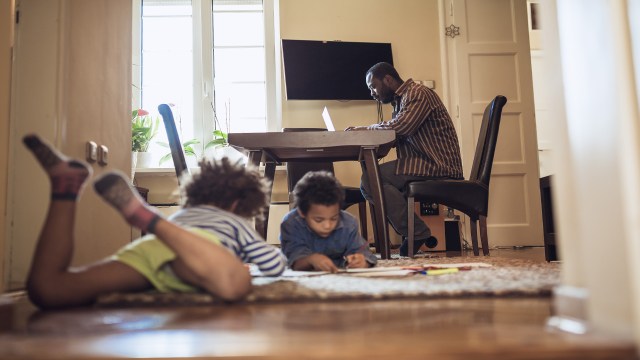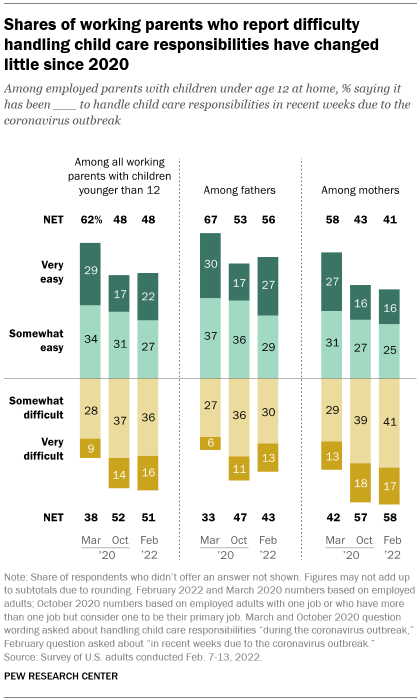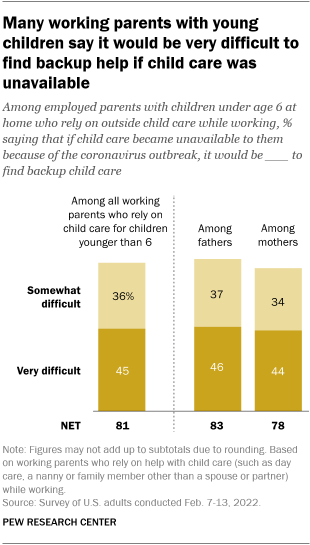
Nearly two years since the coronavirus pandemic hit the United States, the emergence of the highly transmissible omicron variant late last year upended things yet again, leaving many parents of young children scrambling to figure out care.
Pew Research Center conducted this analysis to better understand the experiences of employed parents during the coronavirus outbreak and how those experiences may have changed throughout the pandemic. This analysis is based on 1,308 U.S. adults who have children younger than age 12 living in their home and are working either part time or full time. The data was collected as a part of a larger survey conducted Feb. 7-13, 2022. Everyone who took part is a member of the Center’s American Trends Panel (ATP), an online survey panel that is recruited through national, random sampling of residential addresses. This way, nearly all U.S. adults have a chance of selection. The survey is weighted to be representative of the U.S. adult population by gender, race, ethnicity, partisan affiliation, education and other categories. Read more about the ATP’s methodology.
Here are the questions used for this analysis, along with responses, and its methodology.

About half of working parents of children younger than 12 at home say it has been at least somewhat difficult to handle child care responsibilities in recent weeks, similar to the share who said in October 2020 that handling these responsibilities during the pandemic had been difficult, according to a new Pew Research Center survey conducted Feb. 7-13. And a substantial share of working parents of younger children say it would be very difficult for them to find backup care if needed.
The share of working parents with children younger than 12 at home who say it’s been difficult to handle child care is about the same as the share who expressed similar concerns in October of 2020, when many schools and child care centers were not operating in person. In March 2020, when the pandemic had just begun to trigger shutdowns, a majority of these parents said it had been at least somewhat easy for them to handle child care during the COVID-19 outbreak.
Working mothers with kids younger than 12 are more likely than working fathers to say it has been difficult to handle child care responsibilities in recent weeks due to the coronavirus outbreak (58% vs. 43%). Mothers were also more likely than fathers to say it had been difficult to manage child care responsibilities during the pandemic in the October 2020 survey.

Among working parents with children under age 6 who rely on child care from someone other than a spouse or partner, 45% say it would be very difficult for them to find backup child care if care was unavailable to them because of reasons related to the coronavirus outbreak, and 36% say it would be somewhat difficult. Only about two-in-ten of these working parents (18%) say it would be at least somewhat easy for them to find backup child care if needed.
Majorities of working mothers (78%) and fathers (83%) of kids under 6 who rely on outside help say it would be difficult to find backup child care.
Note: Here are the questions used for this analysis, along with responses, and its methodology.
